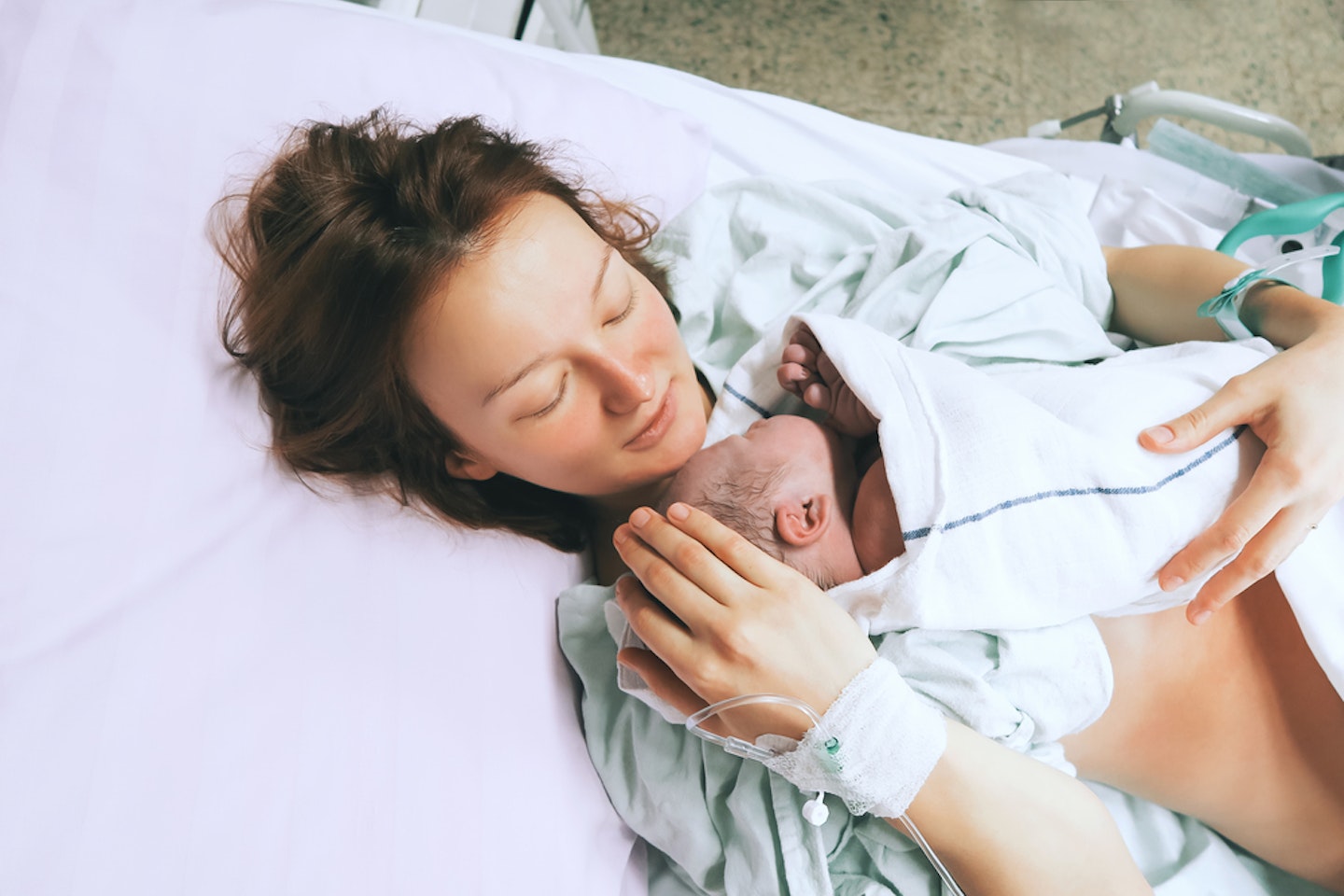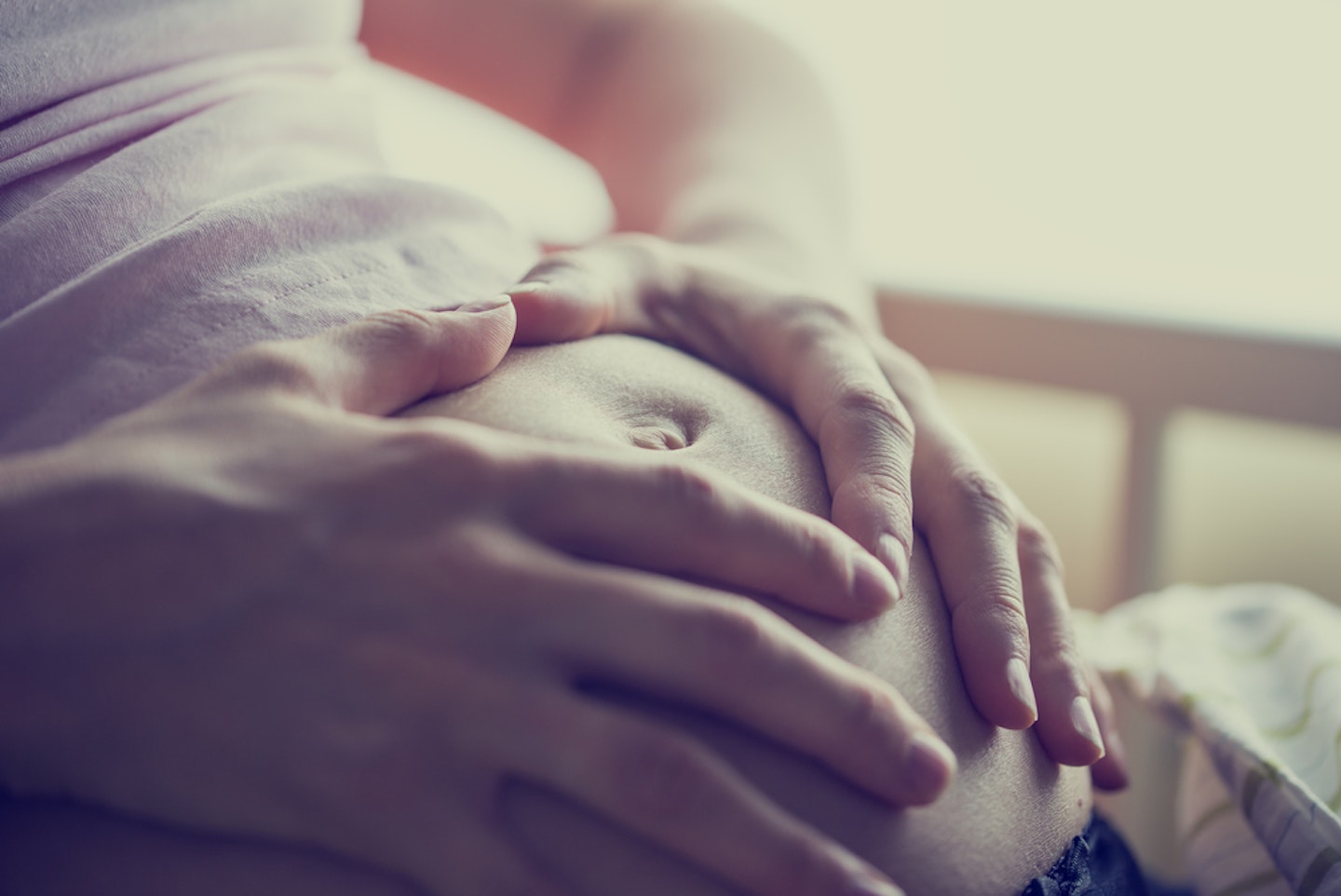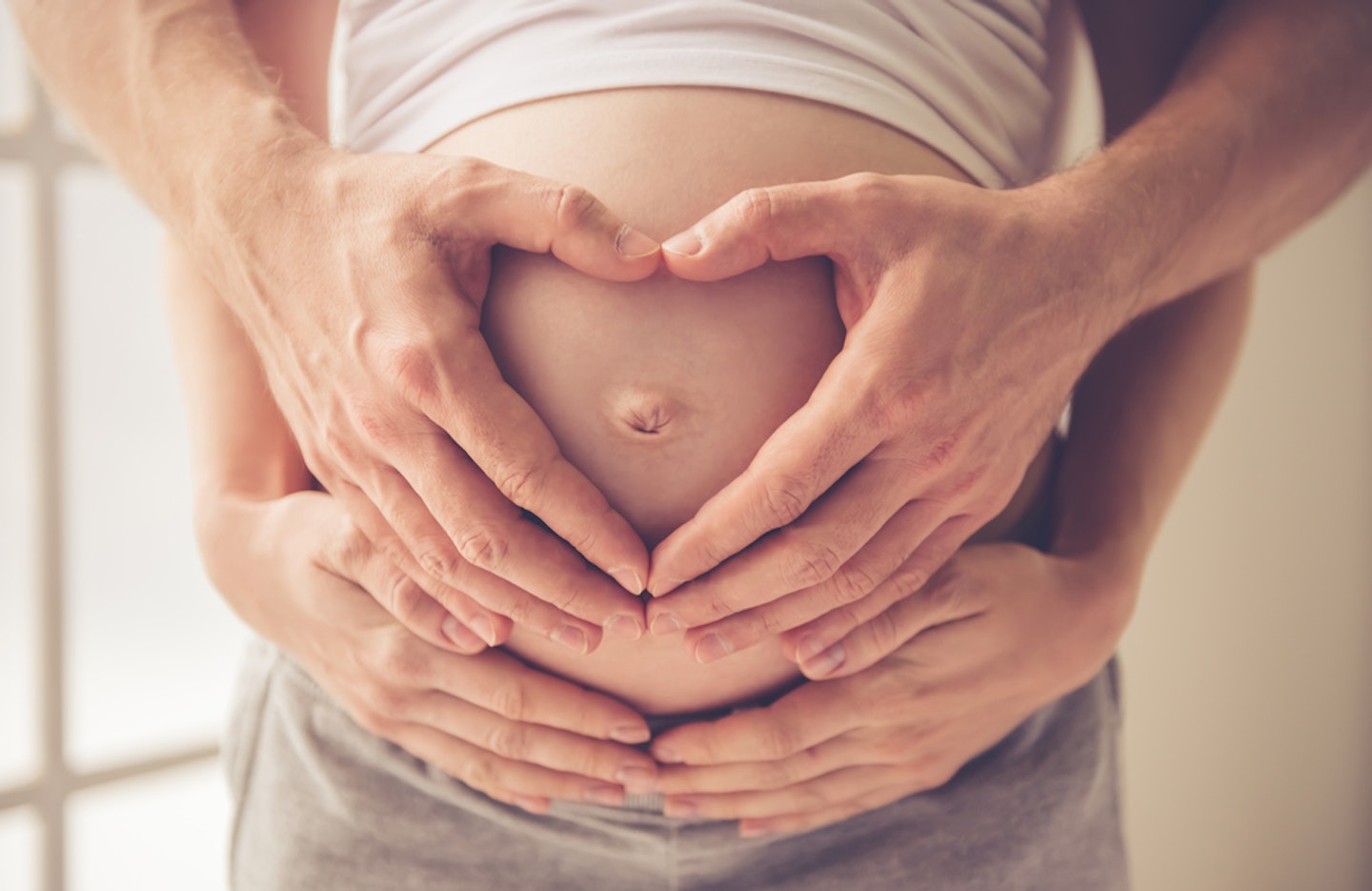Thanks to both the logistics (er, a newborn baby through my WHAT) and scary birth stories mums insist on telling you, even with a massive bump in tow, it's no wonder a lot of women worry about labour and more specifically, labour pain.
Sure, pain is a given, but will it hurt, hurt? Will I be able to get through it without sobbing/fainting/pooping? Are there any tips on sailing through labour like a god damn champ?
Here are 6 surprising things that can make labour more painful, so it's best to adhere to the following at all costs. Bendy straws at the ready...
What will make labour more painful?
Labour pain
 1 of 6
1 of 61) Lying on your back
As your uterus contracts forward, it's encouraged you stay in upright, forward leaning positions to ensure you're working with gravity and not against it. What's more, lying on your back also pulls your baby back, which isn't great for blood supply. If you need a rest (hello, 18 hour labours!), it's advised to lay on your side instead.
 2 of 6
2 of 62) Feeling the fear
And breathe! Feeling worried about giving birth will leave your body feeling very tense and tight, resulting in a lot more pain. Remember to relax (if you can!) and tell yourself this is a natural process that your body is more than equipped to deal with. Trust your body to do the job and remember every contraction is a step closer to meeting your little one!
 3 of 6
3 of 63) Stressful surroundings
Turns out your environment can play havoc with your stress responses, meaning you're more likely to be tense and agitated. From friends and family you'd rather not have in the room, to managing clutter and chaos - it's ideal to have a pre-approved birth plan you're happy with.
 4 of 6
4 of 64) Being dehydrated
Keep plenty of fluids handy, as being dehydrated can cause problems in labour as your uterus doesn't contact efficently. In fact, every body function needs adequate amounts of water to work smoothly. We recommend packing bendy straws in your hospital bag so your birthing partner can help you sip water when needed.
 5 of 6
5 of 65) Not knowing any natural pain relief methods
It's easy to assume that the only options you have for pain relief involve a needle(!) and a lot of drugs. However, some mums swear by other methods which are more natural including birth pools, hypnobirthing and even visualisations. What's even better, is that there are no side-effects to contend with. Result.
 6 of 6
6 of 66) Not having a birth doula
A birth doula, Greek for 'woman caregiver', can be a godsend during labour. In most hospitals, a midwife may have a few women to look after during your labour. So, if you’re looking for extra support, emotional or physical, during your pregnancy and birth, then hiring a doula may be the answer.
And a doula could well be worth the investment – research has revealed the support that a doula provides can shorten first-time labour by an average of two hours, decrease the need of a C-section by 50 per cent and lowers your chance of needing strong pain relief.
Did any of the above help you during your labour experience? Let us know onFacebookor Twitter!
Now read:
